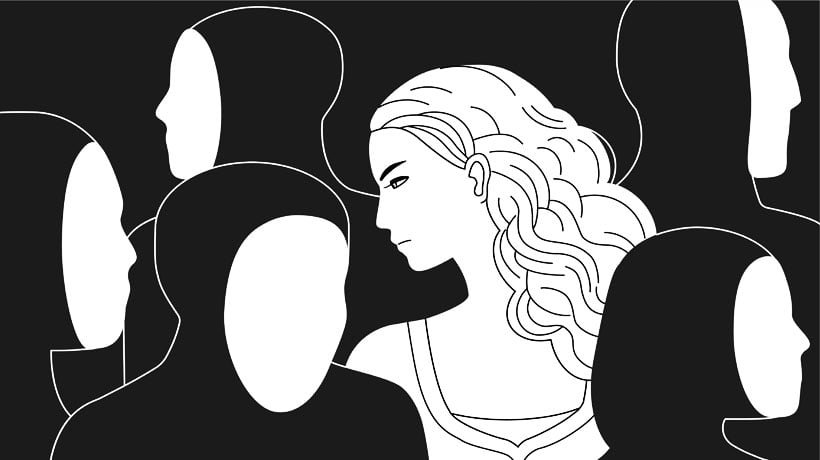Loneliness is characterized to increase the risk of physical and psychological disorders, according to The Research Digest, The British National Psychological Society. Loneliness can be detrimental to one’s health. However, it is that the type of loneliness may matter; having a few close friends is better than having many friends who aren’t as close.
How different relationships affect loneliness
The Research Digest discussed how the study where participants had to complete a scale that measured “social loneliness,” which focuses on the quantity of one’s social relationships, and “emotional loneliness,” which focuses on the quality of one’s relationships.
There are four classes of loneliness on a scale. The first class, “low loneliness,” was characterized by low scores on both social and emotional loneliness. The second class, “social loneliness,” was comprised of people with low emotional loneliness, but high on social loneliness. The third class is “emotional loneliness,” which was high emotional loneliness but low levels of social loneliness. Participants in the fourth were “social and emotional loneliness” class, who scored high for both types of loneliness.
The Research Digest discussed the results have shown that the quality of relationships is more important to mental health than the number of people. The ones on the “low loneliness” class were shown to be least distressed than were the people in the “social loneliness” class, then those in the “emotional loneliness” class, and finally the “social and emotional loneliness” class. They even saw that people in both last two classes had symptoms of depression and anxiety, which can lead to a psychological disorder. The experience of emotional loneliness has a larger negative impact on mental health and it’s even more severe when social and emotional loneliness is involved.
Quality friend vs. toxic friends:
According to Psychology Today, there are many different qualities that can make a good friend.
- Trustworthiness and honesty: Honesty is important as it requires that we speak openly and bring objectivity into the relationship. People who are honest build trust within any relationship which is a key factor for any relationship to work. Also being able to trust another person builds a quality relationship because it involves being comfortable with vulnerability. If it’s hard for you to be vulnerable with a friend, it shows less quality in the relationship.
- Dependability: This means that you can count on your friend – someone who is there when you’re in need and is willing to stand up for you.
- Listening skills: Someone who is good at listening to you is essential because it allows communication of intimate thoughts, feelings, and experiences.
- Support: You want someone who is supportive of your good times especially. This is essential because you can see if someone truly cares about you when they see you progress and are happy for you. In comparison to someone who envies you.
There are also many different qualities that can show when someone is a toxic friend. According to Psychology Today, some qualities can be:
- Take versus give: In a friendship when you see that you are receiving less and giving more than you know it’s not a quality relationship. Especially if your needs aren’t being met and only the friends need is being met.
- Not trustworthy: Those who hear out secrets and let them out can play a factor in as a toxic friend. It’s the way it’s done that is important as if a friend does it to be cruel or hurt and disappoint you on purpose.
- Not supportive: If a friend tries to make you feel low or doesn’t support what’s good for you, shows a toxic friend. Especially if you see that friend envy you. Also, someone who doesn’t respect you as a person shows that they aren’t a true friend.
Sources:
https://digest.bps.org.uk/2019/02/20/different-kinds-of-loneliness-having-poor-quality-relationships-is-associated-with-a-greater-toll-than-having-too-few/
https://www.psychologytoday.com/us/blog/lifetime-connections/201503/the-13-essential-traits-good-friends
https://www.psychologytoday.com/us/blog/healthy-connections/201006/7-signs-youre-in-toxic-friendship



